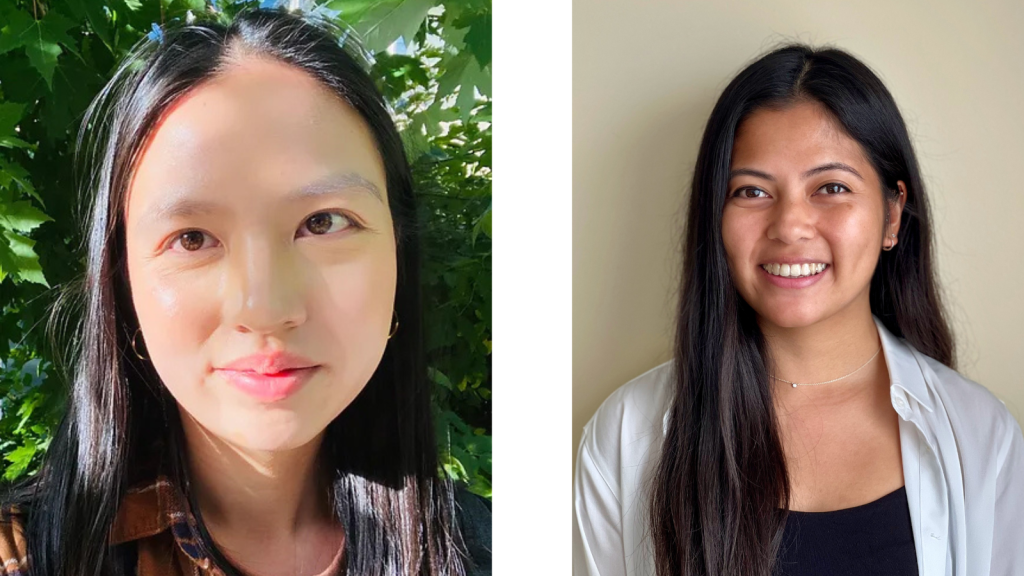Vivian Li and Kimberly Villacorta are the incoming presidents of the Nursing Undergraduate Society (NUS) and Graduate Nurses Student Society (GNSS) respectively. Both students are very excited to be transitioning into a leadership role among their peers and have unique aspirations for what their presidency will have in store for their specific student cohorts.

For Li, the idea of even considering the role of NUS president was a bit out of her comfort zone, but during her first year in the BScN program she joined NUS and ended up elected Vice-President, where she met a lot of diverse, talented and smart people who she says had great ideas about nursing education, and also about the ways in which the student society could have a positive impact.
“My peers and their positive outlook are what really spurred me to consider the role of president, and I think my overarching goal this year will be to help foster that kind of social engagement among our cohort, and help students feel a sense of community,” says Li.
Similarly, for Villacorta, the decision to pursue the presidency of GNSS was driven by her desire to foster a stronger sense of community among graduate nursing students. Having already completed her BScN degree at Bloomberg Nursing and having also been elected president of NUS at that time, she felt a deep connection to the faculty and wanted to nurture her engagement through student leadership.
“I honestly love Bloomberg Nursing and U of T so much, there are so many resources available to us as nursing students. I’ve also always been involved with student council, because I like how it brings people together. Community is very important to me, making people feel included and feel like they want to come to school, can make a huge difference in the lives of students,” says Villacorta.
Both student leaders recognize the impact of the pandemic on student engagement and are determined to revitalize a sense of community. Villacorta aims to organize events that cater to both in-person and online participation, acknowledging the challenges faced by those in a mostly online graduate program.
“It’s been hard to engage people, everyone is busy, especially graduate students, but we are hopeful that this year we will be able to have events where students can interact more with each other, but also explore opportunities for events that work well virtually, instead of making everything hybrid,” says Villacorta.
Li is focused on promoting a variety of events that cater to the diverse interests of nursing students. She also believes that by emphasizing wellness and highlighting the resources available to students, her peers will feel more connected and engaged within the program.
Both Li and Villacorta are looking forward to the possibility of planning events in partnership between both student societies, and leveraging the unique opportunities for connection between the undergraduate and graduate programs, particularly in regards to mentorship and networking.
Reflecting on their journeys into nursing, both Li and Villacorta express deep passion for the profession, and both have chosen nursing because of the opportunity it provides to make a difference in people’s lives.
For Villacorta it is why as a Master of Nursing student, she has her sights set on becoming a nurse practitioner (NP) and advocating for equity and access to healthcare.
For Li she is looking forward to engaging with diverse patient populations and building meaningful relationships with patients. She is actively seeking to improve patient outcomes through cultural sensitivity and awareness.
Both students envision a future where nurses as a pivotal health care provider, see their profession evolving for the better. Their shared commitment to fostering a sense of community, promoting engagement, and advocating for the nursing profession will undoubtedly leave a lasting impact on their peers, faculty, and the future of nursing.